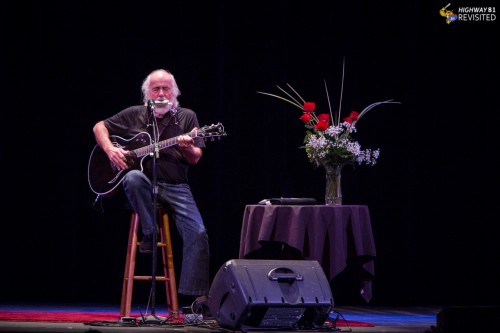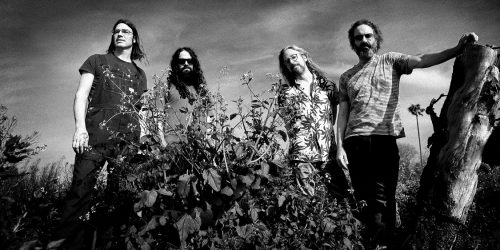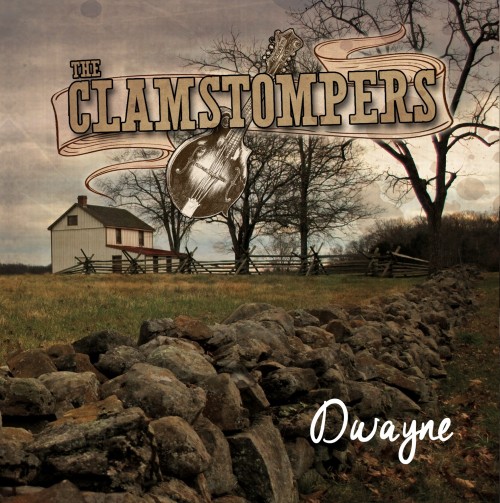Photo by Jesse Faatz
WILKES-BARRE, Pa. – There’s a line about a storyteller in the Grateful Dead classic “Terrapin Station”: “His job is to shed light, not to master.”
Robert Hunter, the writer of those words, outdid his imagined storyteller Wednesday night at the FM Kirby Center, not only shedding light on the lyrics that have become stitched into the fabrics of American culture but also showing a masterful touch as a performer.
While Hunter’s songs eventually were played in stadiums through massive sound systems and accompanied by equally large light shows, he and Jerry Garcia first wrote them small and simple, and that’s how the lyricist presented them Wednesday. From the opening strums of “Bertha” to the encore-beginning “Ripple” (the latter of which included Hunter credo “Let there be songs to fill the air”), the cozy but vociferous audience was treated to the bare-bones versions of the tunes, offering a fascinating look at their lyrical and musical blueprints – with some sly tweaks by the master himself here and there.
Following the aforementioned “Bertha,” Hunter used “Dire Wolf” and “Peggy-O” together, segueing back and forth between the pieces and changing lyrics to the latter to fit the former’s “don’t murder me” plea. The erudite folk was put aside for the pure rock and roll of “Deal,” with a verse not included in the Dead’s version, a similarly updated “Friend Of The Devil” and “Jack Straw,” a wide-open rocker reimagined as a folk song. “I’m proud to have written it,” said Hunter, obviously pleased to be back on the road as a touring act.
“West L.A. Fadeaway,” recorded as a slippery funk number, re-jiggered an acoustic blues, was a fun first-set highlight and ended the relatively short first portion of the show.
Hunter opened his second set with “Box Of Rain,” the lead track on the Dead’s “American Beauty” written for bassist Phil Lesh. Hunter’s performance was akin to the recorded take, but he added a meandering guitar part which brought a ruminative quality to what was written, at least musically, as a bouncy song. “Mountains Of The Moon” was quietly intense, both breathy and quasi- psychedelic, and led into the lazy shuffle of “Sugaree.” Hunter shared that he first wrote the Dead favorite as “Stingaree,” even singing a few lines of what could have been, for fun.
The latter-day Hunter/Garcia number “Standing On The Moon” was one of the concert’s high points; Hunter’s poetry, sometimes overshadowed by the sheer magnitude of a Dead show, shone brightly, and each word hit head-on. The regal “Rubin and Cherise,” a beautiful, knotty story song, included some extra verses to the tale.
The bard closed strong, with “Brown Eyed Women,” singing like an Irish pub performer; his own, non-Dead song, a rocking “Promontory Rider”; “Touch of Grey,” with the line “I will survive” delivered with dismissiveness rather than jubilation; and the beloved “Scarlet Begonias.” On the latter, his angular guitar style bore more in common to the Dead’s Bob Weir than Garcia’s.
Hunter returned to the stage for “Ripple,” one of his favorite songs to perform, leading several fellows in the front row to stand up, arm-in-arm, and sing along, and a confident, a cappella “Boys In The Barroom.”
It was a fun and fitting end to a remarkable show, one that spanned 50 years of work – and centuries, if you include the myriad source material. Hunter is a genius, and that is not a little-known fact, but it’s generally a behind-the-scenes brilliance. On Thursday, his listeners got to see it in the flesh, something increasingly rare that should be welcomed warmly.




Leave a Reply